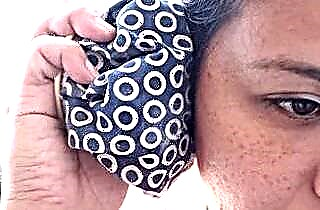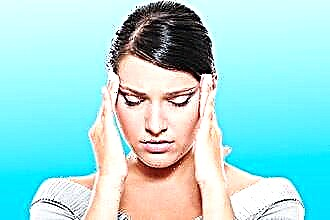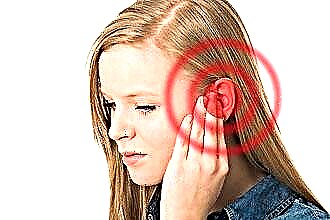Allergic rhinitis is a non-communicable disease characterized by inflammation and swelling of the nasopharynx. Redness of the conjunctiva of the eyes, puffiness of the face, runny nose, sneezing and lacrimation are typical manifestations of the disease. The provocateur of inflammation in the nasal cavity is an allergic reaction of the mucous membrane to the effects of irritating substances. How to cure allergic rhinitis?
 Therapy for ENT disease begins with the elimination of provoking agents that cause unwanted pathological reactions. These include dust mites, yeast-like fungi, medicines, plant pollen, gassed air, library dust, wool, etc.
Therapy for ENT disease begins with the elimination of provoking agents that cause unwanted pathological reactions. These include dust mites, yeast-like fungi, medicines, plant pollen, gassed air, library dust, wool, etc.
In addition, it is recommended to undergo drug treatment, which is aimed at eliminating inflammation in the nasopharynx and reducing the sensitivity of the mucous membrane to the action of allergens.
About the disease
Inflammation of the nasopharyngeal mucosa, provoked by the influence of household and specific allergens, is called allergy or allergic rhinitis. The penetration of dust and pathogens into the body stimulates the activity of the mucociliary system. When air is inhaled, irritating substances settle on the surface of the ciliated epithelium, which covers the entire inner surface of the nasopharynx. Within 15-20 minutes, the hairs that the mucous membrane contains literally push out all foreign objects from the nasal canals.
Molecules of some substances (dust, gases, perfumes) are absorbed into the nasal mucosa for several minutes even before the self-cleaning mechanism of the nasopharynx is activated. With a single contact with irritating agents, mast cells (mast cells) are formed in the tissues of the nasopharynx, and with repeated penetration of allergens, they are destroyed and, accordingly, the release of histamine and arachidonic acid. These substances are mediators of inflammation, therefore, as a result of their release in the mucous membrane, unwanted allergic reactions occur - inflammation, itching, burning, swelling, etc.
Delayed relief of allergic reactions is fraught with severe swelling of the nasopharynx, the development of respiratory failure and suffocation.
Taking into account the peculiarities and mechanisms of development of ENT disease, the treatment of allergic rhinitis begins with the elimination of provoking factors, i.e. antigens (allergens). And only after that, the patient is prescribed medications, with the help of which it is possible to stop all the unpleasant manifestations of the disease.
Treatment features
How to get rid of an allergic rhinitis? Drug treatment should be aimed at relieving symptoms of the disease, treating concomitant pathologies (otitis media, sphenoiditis) and preventing exacerbations of allergies. It should be understood that inflammation in the nasopharynx can be fraught with serious consequences and formidable complications. Untimely treatment of allergic rhinitis leads to the development of bronchial asthma.
To cure allergic rhinitis in adults, you must strictly adhere to the program of therapy and prevention of ENT disease, which implies:
- elimination of provoking factors, i.e. allergens;
- creation and maintenance of a hypoallergenic life;

- adherence to a hypoallergenic diet;
- the use of drugs of symptomatic action;
- undergoing anti-inflammatory therapy.
During the period of exacerbation of the disease, contact with objects and substances that could potentially worsen well-being should be avoided. Thanks to the creation of a hypoallergenic life, the likelihood of expanding the spectrum of sensitization is significantly reduced.
For example, you are allergic to the fur of a four-legged pet - a cat, dog, guinea pig, etc. With an exacerbation of an allergic rhinitis, allergists recommend limiting contact not only with pets, but also with other objects and substances that have a high degree of allergenicity. These include:
- household chemicals (cleaning products, washing powders);
- food products (milk, honey, nuts);
- medications (contraceptives, antibiotics);
- pollen of plants (linden, birch, cereals).
If you do not protect yourself from exposure to potentially hazardous substances in time, in the future this can cause the development of an additional allergic reaction.
Special therapy
How is allergic rhinitis treated? The most radical, but effective method of treating ENT disease is allergen-specific therapy. Hyposensitizing treatment is carried out only by the attending physician within the walls of a polyclinic or hospital. The essence of the method lies in the introduction of a small amount of antigens, i.e. irritating substances into the body. Over time, the dose of injected allergens is increased, which contributes to the development of resistance to them.
Allergen-specific therapy is a risky, but quite effective method of treatment, which is carried out only under the close supervision of an allergist or immunologist. If the body gets used to the action of irritating substances, allergic rhinitis is completely cured. However, it should be borne in mind that this process is quite long and in time it takes from six months to 5 years. As a rule, allergens are injected into the body. At the same time, the success of treatment largely depends on the stage of development of the disease. The earlier the patient turns to a specialist for help, the higher the likelihood of stopping the pathological manifestations of allergic rhinitis.
Antiallergic drugs
Is it possible to get rid of the disease forever? The effectiveness of treatment largely depends on the degree of development of an allergic rhinitis. Mild forms of ENT disease can be completely cured even with the help of symptomatic drugs. But chronic allergic rhinitis is rather difficult to treat and requires prolonged use of antihistamines and topical steroids.
Complex therapy is the key to a successful and quick elimination of the problem. Allergic rhinitis in adults should be treated with topical and systemic antihistamines. To reduce the likelihood of adverse reactions, doctors recommend using only second or third generation drugs. The most effective and safest medicines include:
- Claritin;
- "Zodak";
- Telfast;
- "Gismanal";
- Trexil;
- Rupafin.
Antiallergic drugs can negatively affect the functioning of the kidneys and heart, therefore, before using them, you should consult an allergist.
To get rid of allergic rhinitis, you must strictly follow the doctor's recommendations regarding the duration of therapy and dosage of medicines. As a rule, it takes no more than 2-3 weeks to treat mild rhinitis.

Antiallergic nasal sprays
Like the common cold, a runny nose of an allergic origin must be stopped in the bud. According to observations, untimely treatment of the disease leads to inflammation of the eyes (conjunctivitis), auditory tube (otitis media), larynx (laryngitis). What should be the treatment for allergic rhinitis? Therapy involves the use of local medications, with which you can eliminate inflammation, swelling and burning in the nasopharynx.
It is worth considering that antiallergic sprays, such as "Kromosol", "Nazaval" and "Kromoglin", are advisable to use in the treatment of ENT diseases of mild severity.In addition, they can be used as prophylactic drugs to prevent exacerbations of seasonal rhinitis. The aforementioned agents form a protective film on the mucosal surface that is impervious to allergens. Their use prevents the penetration of irritating substances into tissues and, accordingly, an allergic reaction.
It is recommended to treat moderate allergic rhinitis with the following nasal remedies:
- "Aldecin";

- Benorin;
- Fliksonase.
With an exacerbation of the disease, it is not recommended to abuse nasal drops, as they are addictive and increase the risk of developing a drug-induced rhinitis.
Nasal corticosteroids
To get rid of allergic rhinitis, it is recommended to use so-called nasal corticosteroids. Medicines of this group have a pronounced anti-inflammatory and wound-healing effect. They contain substances that interfere with the synthesis of histamine and other inflammatory mediators. Thanks to their use, it is possible to eliminate inflammation in the nose within 3-4 days.
Corticosteroid abuse can lead to thinning of blood vessels and nosebleeds.
To facilitate nasal breathing in an adult and prevent mucosal inflammation, the following corticosteroids can be used:
- "Nazonex";
- "Beconase";
- "Propionate";
- Fluticasone;
- Beclomethasone.
With the help of anti-inflammatory drugs, it is possible to eliminate foci of inflammation not only in the nose, but also in the paranasal sinuses. Corticosteroid drugs quickly stop inflammation and prevent the development of side diseases such as sinusitis, sphenoiditis, conjunctivitis, etc.





